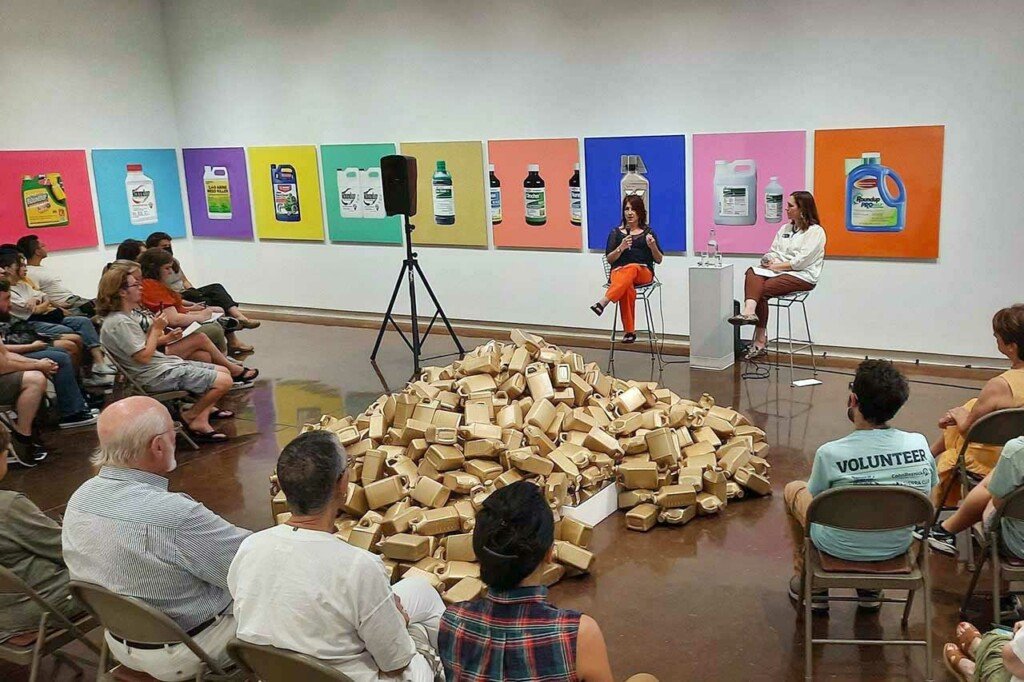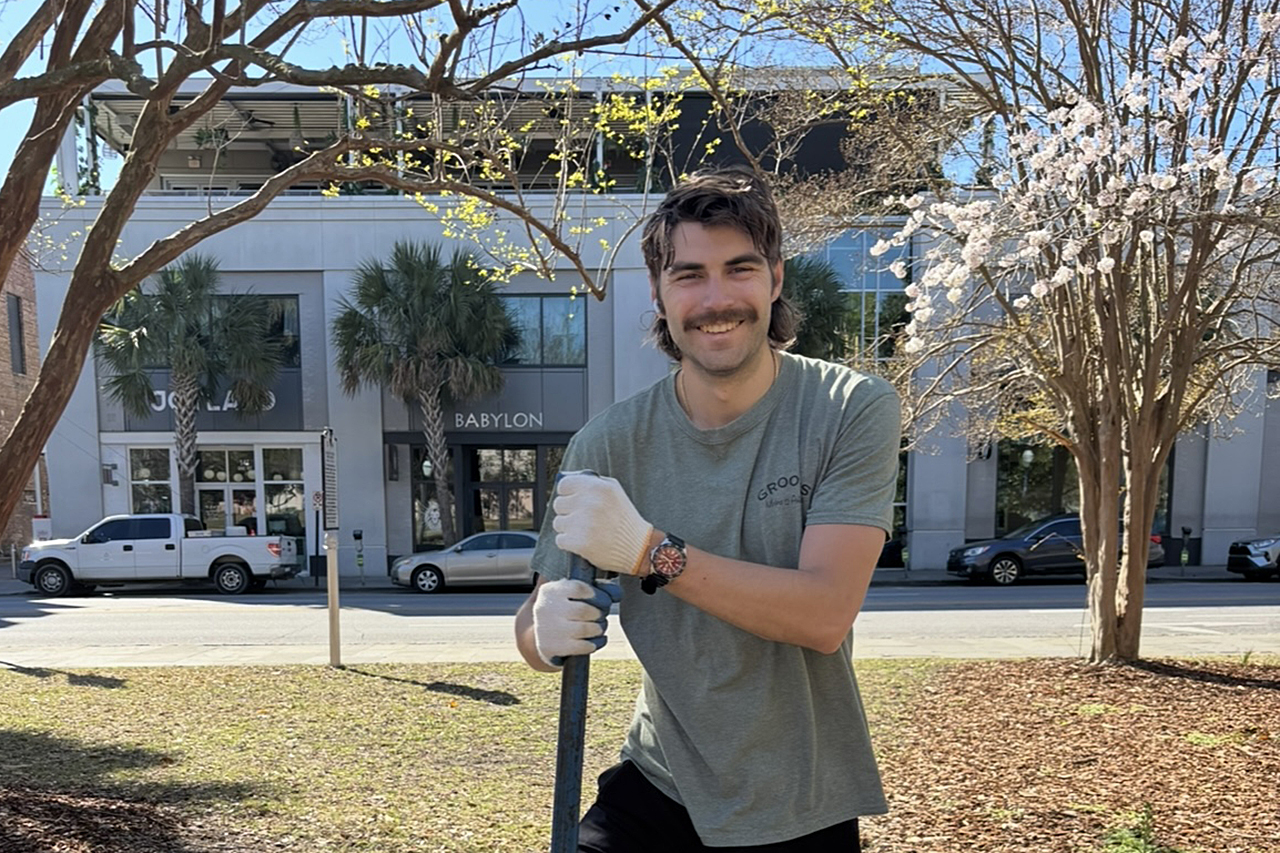CofC Podcast: Artist Kirsten Stolle Explores the Narrative Around Chemical Corporations
On this episode we talk to artist Kirsten Stolle about her exhibition, Only You Can Prevent a Forest.
What does it mean when informational text is cut into pieces, tossed in the air and reassembled on canvas? How does it feel to enter a gallery and encounter empty pesticide bottles, painted in glittery gold and piled on top of one another like a sculpture? Kirsten Stolle – part visual artist, part historian and part archaeologist – creates art that inspires questions.
The exhibit explores the global influence of chemical companies on our food supply and their efforts to downplay the effects of their products on our health and the environment.

Featured on this Episode:
Kirsten Stolle is a visual artist working in collage, text-based images and installation. Her research-based practice is grounded in the investigation of agribusiness propaganda, food politics and biotechnology. Stolle was born in Newton, Massachusetts, in 1967, lived and worked in the San Francisco Bay Area for 19 years. She currently lives in Asheville, North Carolina. Her work is included in the permanent collections of the San José Museum of Art, Crocker Art Museum and the Minneapolis Institute of Art.
Katie Hirsch is the director and chief curator of the Halsey Institute of Contemporary Art at CofC. At the Halsey Institute, Hirsch has recently curated exhibitions by Coulter Fussell, Jibade-Khalil Huffman, Dyani White Hawk and Kukuli Velarde. Prior to moving to Charleston, she lived in Shanghai, China, where she worked as senior curator at island6 Arts Center in the city’s famed M50 Art District. Hirsch received her M.A. in art history from Florida State University, where her research focused on the visual cultures of Mesoamerica.
Resources for this Episode:
If you’re interested in learning more about pesticides and the environment, Stolle recommends the following:
Silent Spring – Rachel Carson’s pivotal book on the dangers of pesticides, specifically DDT. The EPA banned DDT in 1972, 10 years after the publication of Silent Spring.



